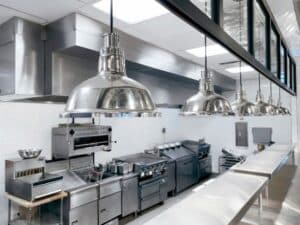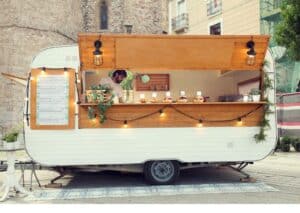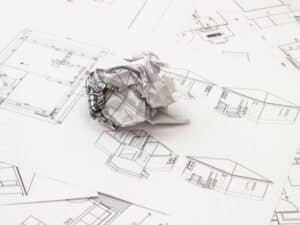When building or renovating a restaurant, plumbing plays a pivotal role in ensuring smooth daily operations. From dishwashing and food preparation to maintaining health standards and managing waste, an efficient and compliant plumbing system is the backbone of any successful restaurant. Poor plumbing design can lead to costly disruptions, compliance issues, and reduced operational efficiency.
In this blog, we’ll explore the key considerations for plumbing in restaurant construction and why getting it right from the start is essential to the long-term success of your establishment.
Why Plumbing is Critical in Restaurant Construction
Restaurants rely on complex plumbing systems to meet the high demands of food service. A well-planned plumbing system ensures that your restaurant operates efficiently, remains compliant with health and safety regulations, and minimizes the risk of costly repairs or shutdowns. Here’s why plumbing is crucial in any restaurant construction project:
- High Water Demand Restaurants use large volumes of water for cooking, cleaning, and sanitation. A well-designed plumbing system ensures an uninterrupted water supply, even during peak hours, to keep both the kitchen and restrooms running smoothly.
- Health and Safety Compliance Health departments require restaurants to meet strict codes related to water temperature, cleanliness, and backflow prevention. A failure to comply can lead to penalties or closure. Proper plumbing ensures these standards are consistently met.
- Waste and Grease Management Efficient waste and grease management is critical to avoiding plumbing blockages, sewer backups, and environmental violations. The proper installation of grease traps and drainage systems ensures that fats, oils, and grease (FOG) are removed from wastewater before it enters the sewer system.
- Preventing Downtime Plumbing failures can disrupt service, leading to downtime, lost revenue, and damage to your reputation. Ensuring that your plumbing is installed correctly, maintained regularly, and built to handle the demands of your restaurant is key to avoiding these disruptions.
Key Considerations for Restaurant Plumbing
Proper Water Supply and Pressure
A commercial kitchen’s water supply must be robust enough to handle everything from dishwashers and prep sinks to restrooms and beverage stations. Without sufficient water pressure, tasks like cleaning dishes or washing hands can become inefficient, slowing down operations.
Best Practices:
- Ensure the plumbing system is designed to meet the peak water demands of both the kitchen and restrooms.
- Install booster pumps if necessary to maintain consistent water pressure across all fixtures.
- Plan for future growth by designing a system that can accommodate additional fixtures or equipment.
Grease Trap Installation and Maintenance
Restaurants produce a significant amount of grease, which can cause major plumbing issues if not properly managed. Grease traps intercept fats, oils, and grease from the wastewater before they enter the sewer system, preventing clogs and compliance issues with local authorities.
Best Practices:
- Install a grease trap that is appropriately sized for your restaurant’s output.
- Place the grease trap in an easily accessible area for routine cleaning and maintenance.
- Set up a regular cleaning schedule to prevent grease buildup and ensure the system operates efficiently.
Hot Water Systems
Hot water is essential for cooking, cleaning, and sanitation in a restaurant setting. Local health codes typically require hot water at certain temperatures, especially for dishwashers and handwashing stations. Failing to meet these requirements can lead to health violations.
Best Practices:
- Install an appropriately sized water heater or tankless water heater system to ensure a continuous supply of hot water.
- Consider energy-efficient systems to reduce utility costs over time.
- Regularly maintain and inspect water heaters to ensure they meet health code standards for temperature and capacity.
Drainage Systems and Floor Drains
Commercial kitchens generate a lot of wastewater that needs to be disposed of quickly and efficiently. A well-designed drainage system, including floor drains, helps keep kitchen areas clean and free from standing water, which is essential for both safety and sanitation.
Best Practices:
- Install floor drains in key areas such as prep stations, dishwashing areas, and under sinks.
- Use durable materials like stainless steel for drain covers and traps to prevent blockages and ensure easy cleaning.
- Ensure the drainage system is properly sloped to prevent standing water and improve drainage speed.
Backflow Prevention
Backflow occurs when contaminated water flows backward into the clean water supply, posing serious health risks. Backflow prevention devices are essential to keeping potable water safe, especially in restaurants where water is used for both cooking and cleaning.
Best Practices:
- Install backflow preventers on all critical fixtures, such as sinks, dishwashers, and ice machines.
- Have backflow prevention devices regularly tested and inspected to ensure they’re functioning properly.
- Ensure compliance with local health regulations that govern backflow prevention.
Restroom Plumbing
In addition to kitchen plumbing, your restaurant’s restroom plumbing must be designed to handle high traffic while maintaining proper sanitation. Restroom plumbing needs to meet accessibility requirements, provide sufficient water pressure, and use commercial-grade fixtures.
Best Practices:
- Ensure restrooms are compliant with ADA (Americans with Disabilities Act) regulations, including the placement and height of sinks, toilets, and hand dryers.
- Install touchless faucets and flush valves to improve hygiene and reduce water consumption.
- Use durable, commercial-grade plumbing fixtures that can withstand frequent use and are easy to clean.
Gas Lines for Kitchen Equipment
Many restaurants rely on gas-powered appliances such as ovens, ranges, and fryers. The proper installation of gas lines is essential for both safety and performance. Faulty gas lines can pose serious risks, including fire hazards and equipment failure.
Best Practices:
- Have gas lines installed by licensed professionals to ensure they meet safety and building code requirements.
- Include gas shut-off valves that are easily accessible in case of an emergency.
- Regularly inspect and maintain gas lines to prevent leaks or other safety issues.
Compliance with Local Plumbing Codes
Every jurisdiction has specific plumbing codes and regulations that restaurants must follow. These codes cover everything from backflow prevention and grease trap installation to the placement of sinks and drains. Failing to meet these codes can lead to fines, delays, and even the closure of your restaurant.
Best Practices:
- Work with a licensed plumber who has experience in restaurant construction and is familiar with local plumbing codes.
- Make sure all necessary permits are obtained before starting construction.
- Ensure that your plumbing system passes all required inspections to avoid costly delays in opening your restaurant.
Conclusion: A Strong Plumbing System is the Foundation of a Successful Restaurant
A properly designed and installed plumbing system is critical to the success of any restaurant. From ensuring an efficient water supply to managing waste and complying with health and safety regulations, plumbing is a core element that affects every part of your operations.
At BC Restaurant Builders, we specialize in restaurant construction and can help you design and install a plumbing system that meets all your needs, from functionality to compliance. Whether you’re building a new space or renovating an existing one, our team is here to ensure your restaurant’s plumbing is done right, from start to finish. Contact us today to learn more!





